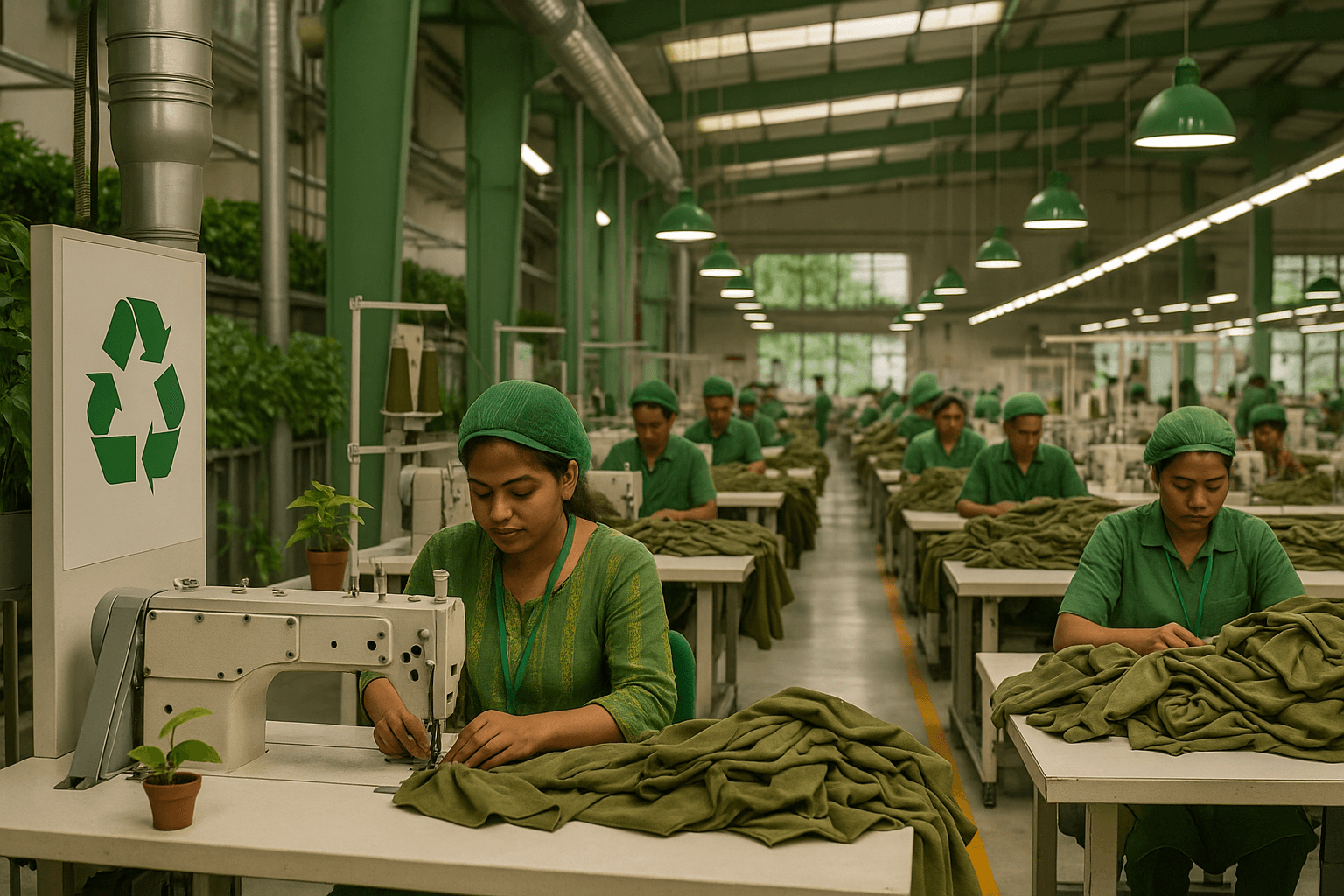Author
Share This News

Bangladesh is steadily positioning itself as a global leader in sustainable apparel manufacturing, reshaping its reputation from being a low-cost supplier to a hub for green, ethical, and future-ready production. For international buyers, this transformation signals both reliability and responsibility, making the country one of the most attractive sourcing destinations in the years ahead.
The global apparel market is undergoing a major shift. Today’s buyers and consumers demand:
Eco-friendly production with lower carbon footprints
Compliance with international labor and safety standards
Transparency across supply chains
Use of sustainable and recycled materials
Bangladesh has recognized this shift and is actively aligning its industry with these global expectations. From green factory certifications to renewable energy adoption and responsible sourcing practices, the country is proving that sustainability is no longer optional — it’s the new competitive advantage.
Green Factory Leadership
Bangladesh is home to some of the world’s most eco-friendly garment factories. Many are LEED-certified, with advanced energy-saving technology, water recycling systems, and sustainable infrastructure that reduces overall environmental impact.
Sustainable Materials & Innovation
Local manufacturers are increasingly investing in organic cotton, recycled polyester, and circular design models. This makes it easier for brands to meet their sustainability pledges while ensuring quality and cost efficiency.
Renewable Energy Adoption
Solar rooftops, energy-efficient machinery, and cleaner production methods are becoming standard practices in forward-looking factories. These upgrades not only reduce emissions but also provide long-term cost stability in energy-intensive production environments.
Social & Ethical Compliance
Worker well-being, fair wages, and safe conditions are central to Bangladesh’s sustainable transformation. Stronger compliance systems are ensuring buyers receive products that reflect global standards of responsibility and ethics.
For brands, wholesalers, and private label companies, sourcing from Bangladesh now brings:
Stronger ESG alignment with buyer policies and consumer demand
Assurance of compliance with international standards and audits
Cost competitiveness plus sustainability, a rare balance in global sourcing
Marketing edge, as buyers can confidently promote “sustainably made in Bangladesh” products
At NRS Apparel, we believe sustainability is not just about certifications — it’s about building trust, long-term partnerships, and future-ready supply chains.
Here’s how we help our clients stay ahead:
Partnering with factories that prioritize green production and compliance
Guiding buyers on sustainable fabric sourcing and eco-friendly alternatives
Ensuring strict quality control so sustainable does not mean compromised quality
Supporting brands with transparency and traceability, so they can confidently share their sustainability story with customers